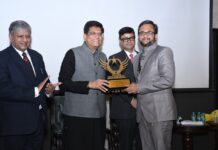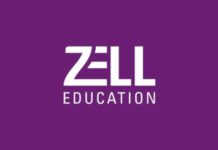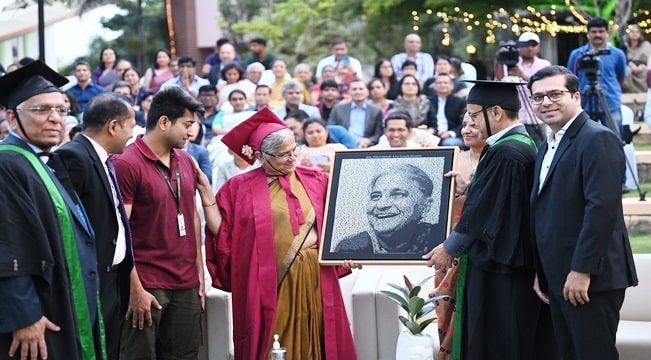Mr. Rustom Kerawalla lauds Prime Minister Narendra Modi’s Independence Day speech; says government vision is to meet India 21st century needs
– Requests the government to include the private sector under the PPP model to contribute, collaborate, and collectively utilise their expertise to expedite the transformation of education in India
New Delhi, August 16, 2020: Ampersand Group Chairman, Rustom Kerawalla, has lauded Prime Minister Narendra Modi for pointing out that the New National Education Policy will work towards making Indians Aatmanirbhar and prepare them for global competition.
Speaking on the occasion of India’s 74th Independence Day, on Saturday, the prime minister said, “Education plays an important role in new India, and we have introduced the National Education policy, which will help our children grow and be equipped for global competition.”
“Education has a key role in the making of ‘Aatmanirbhar’, modern, new and prosperous India. So, we have brought the new education policy after three decades that has been welcomed throughout the country, which instils new confidence,” the PM said.
Commenting on the PM’s speech, Mr. Kerawalla said that the New Education Policy 2020 was aimed at bringing transformational changes in the Indian education system with a global perspective. “The importance to bring in a structured educational system mentioned by the Hon’ Prime Minister Narendra Modi is in consonance with international standards and in sync to meet the needs of the 21st century. This will revolutionise learning and will transform Indian students into global citizens. The policy has a multi-disciplinary, value-based approach focussing on holistic education along with life-skills with special emphasis on skill development to improve the employability rate among our students.”
The policy, he said, lays special emphasis on Early Child Care Education (ECCE) and development by including a play-based multi-faceted curriculum. The universalisation of ECCE will lay the foundation for the development of every child and will be able to honour unique skillsets at an early age.
Commenting on the role of the private sector in Indian education Kerawalla said, “While the Hon’ Prime Minister dwelled upon India reaching global education standards, the role of the private sector to contribute to the development goals are yet to be defined. With the current economic situation in the country, the targeted spending of six per cent of the GDP on education looks challenging. The government should include the private sector under the PPP model to contribute, collaborate, and collectively utilise their expertise to expedite the transformation of education in India.”
He believed that the integration of co-curricular subjects at par will help students honour their hobbies and skills and make value addition in the areas of preference. Project-based learning, vocational learning at an early age, and learning of life skills and inclusion of technology will help a child realise ambitions, gain multi-dimensional knowledge and universal skills and lay the foundation for higher education. In addition, a new system of self, peer, and teacher assessment will give parents and children a 360-degree progress report imbibed with new skills learned during the academic year.
Kerawalla also felt that the inclusion of professional and choice-based disciplines as part of the higher education will give students a whole new dimension towards honouring soft-skills. “This approach of universalising education will help the nation attain the SDG4 goals by 2030,” he said.
He also said that learning in the mother tongue was a welcome step and will help scores of students to learn faster. The move from rote learning to inquiry-based, discovery-based, discussion-based, and analysis based methods for children was extremely important for the holistic development of children and will get India on par with the advanced nations of the world. Kerawalla believed that using technology for education, especially in virtual learning and creation of virtual labs, will bridge the gap for millions of students for whom lab experiments was necessary. The importance of reskilling and upskilling was extremely important considering an individual will move professions during the course of his life.
Ampersand Group: Ampersand Group is a global leader in providing complete solutions in school operations and end-to-end school management services to private institutions and government-run Public-Private Partnership projects in several developing nations across the world. The Ampersand Group was founded in 2004 by Mr. Rustom Kerawalla, a renowned Edupreneur with a vision to transform the educational ecosystem through consistent innovation and use of emerging technologies; to build a modern preschool and K12 education systems, which are equitable and accessible to all. The Group showcases its excellence in the K12 education through its flagship brand – VIBGYOR Group of Schools, a state-of-the-art institution built with a vision of providing high-quality education to young minds for their holistic growth in today‘s times. Today, Ampersand is also one of the leading PPP partners in the national government‘s endeavour of transforming its Anganwadi and Balwadi‘s. The group is currently responsible for providing nearly 700 municipal Balwadi‘s in Maharashtra with innovative interventions such as theme-based lessons, usage of new-age technology and a structured age-appropriate curriculum, while targeting multi age-group students.
Corporate Comm India (CCI Newswire)
































